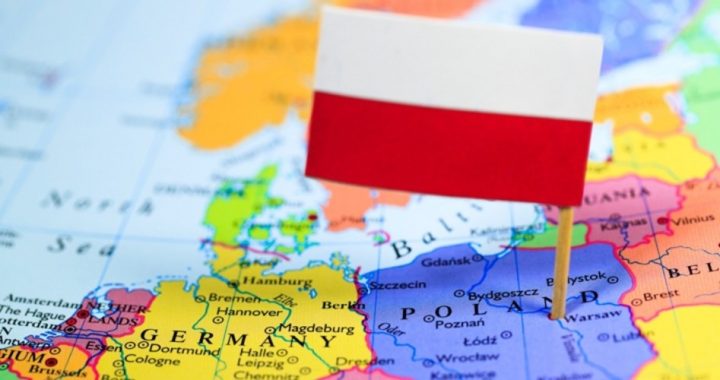
Zsolt Semjen, deputy prime minister of Hungary, and the leader of that nation’s Christian Democrat Party, objected to the European Union’s recent move to dictate to Poland. He called the move “unprecedented and astounding,” added that it “seriously damages Poland’s sovereignty.”
Semjen stood up for Poland after the European Commission (EC), which enforces the law of the EU, announced last week that it is implementing “Article Seven” disciplinary action against the eastern European country. The EC objects to two recently passed Polish laws (along with others passed in recent years) that allegedly threaten the principle of separation of powers. Under Article Seven, sanctions can be imposed against Poland if it fails to bring its laws into conformity with the European superstate’s dictates.
The Commission has argued that the Polish laws it disapproves of give too much power to the ruling party over Poland’s Supreme Court and another Polish body that nominates judges. Donald Tusk, president of the European Council, charged that Poland had “practically liquidated judicial independence in Poland.”
President Andrzej Duda of Poland differed with that assessment, however, arguing that the laws actually uphold a democratic government by making the courts and judges more accountable to the people. He termed the laws “unusually democratic.” Americans who often complain that federal judges “legislate from the bench” can certainly understand the frustration felt by citizens when judges impose their own liberal notions on public policy.
Article Seven has never been used before against a member nation of the EU. Ultimately, it would lead to Poland losing its voting rights within the EU.
Hungarian Prime Minister Viktor Orban accused the EU of interfering in the domestic policies of Hungary, Poland, and Romania because its plan is the creation of Hungarian-born American billionaire leftist George Soros to open Europe to millions of immigrants. Soros denies the charge.
Semjen promised to lend Hungary’s assistance to the defense of Poland, saying it was “unacceptable that Brussels [the headquarters of the super-state European Union] is putting pressure on sovereign member states and arbitrarily punishing democratically elected governments.”
Poland’s prime minister, Mateusz Morawiecki, defended his government’s decision, insisting that the country is “devoted to the rule of law,” but argued, “Current judiciary reform is deeply needed. The dialogue between the Commission and Warsaw needs to be both open and honest. I believe that Poland’s sovereignty and the idea of United Europe can be reconciled.”
That is an open question, actually. EU Commissioner Frans Timmermans explained, “We are doing this for Poland, for Polish citizens.”
In other words, the EU is making itself the superior of the Polish government, asserting they know best as to what is good for Poles. The goals of the EU are considered more important than the national sovereignty of Poland. Beata Mazurek of Poland’s ruling Law and Justice Party suggested that the real purpose of the EU Commission is to punish Poland for its refusal to accept migrants.
The EU has drawn more resistance to its policies from Hungary, Poland, and Romania, once nations under the heel of the Soviet Union, than it has from its member nations in western Europe (except for Great Britain, which voted last year for Brexit, to exit the EU). Among the most intense critics of the increasingly authoritarian EU is Hungarian Prime Minister Viktor Orban. In a large rally last year, shortly after the Brexit vote, Orban said, “People who love their freedom must save Brussels from Sovietization, from people who want to tell us who should live within our countries.” Orban spoke at the 60th anniversary of the 1956 attempted anti-communist rebellion that was crushed by Soviet tanks.
Orban is a major critic of the EU, and a special critic of the recent wave of migrants into Europe, arguing that the survival of freedom is dependent upon the maintenance of the nation-state and the upholding of Christianity. When the constitution of the EU was adopted, it pointedly made no mention of the role of Christianity in Europe’s history, brushing aside calls for an acknowledgment of the importance of the Christian faith. Most of the immigrants flooding into Europe are Muslims.
During the rally, several thousands cheered as Orban declared, “We want to be a European nation, not a nationality within Europe.”
It is clear that Poland and Hungary are presently standing together in opposition to the increasingly authoritarian and centralized European Union. Poland’s President Andrzej Duda was a guest of honor at the rally, and promised his country’s full support of Orban and Hungary in their efforts to prevent the EU from overrunning the national sovereignties of Europe. “You can count on Poland. We march together in the toughest moments,” he stated.
And now that Poland is being threatened by the over-bearing EU, it appears that Poland can count on Hungary.
Ultimately, the solution for both countries is to join the United Kingdom in leaving the meddling EU. The infringement upon either nation’s national sovereignty is unlikely to stop with the question of how Hungary structures its judicial system.
For Americans, the lesson is to avoid entrapment in any similar regionalized government. The rise of the European superstate from a simple trade agreement over coal and steel in the 1950s to the European Union should alert Americans to not follow a similar trajectory leading to a North American Union (NAU), as has been proposed by globalists in our own hemisphere.
Photo: pawel.gaul/E+/getty Images



